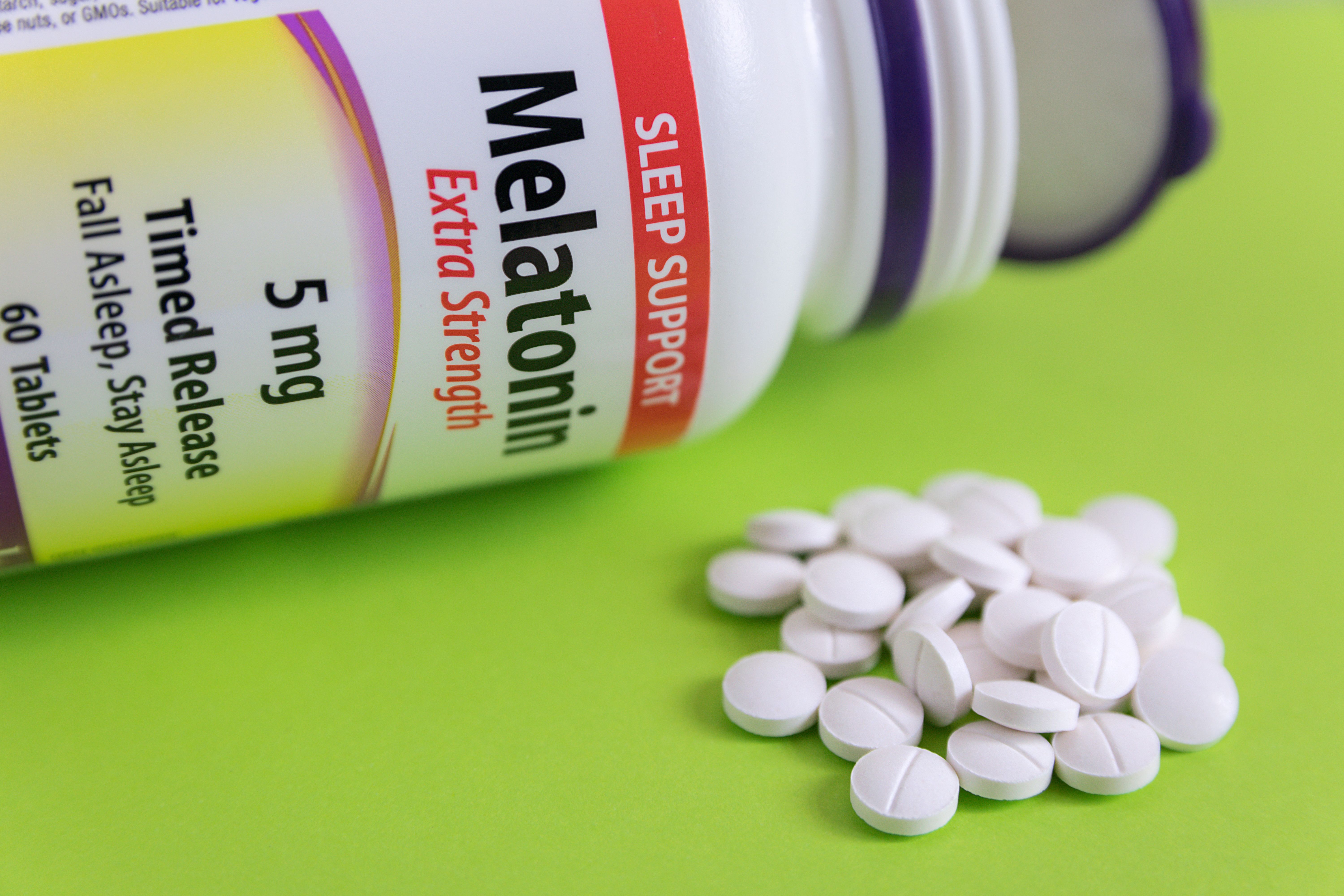Melatonin May Worsen Gut Inflammation in Patients With Irritable Bowel Diseases
The sleep hormone decreased intestinal homeostasis, which may augment inflammation that causes tissue and intestinal damage.
Melatonin (MLT) was shown to disrupt the gut barrier and increase intestinal inflammation in patients with inflammatory bowel diseases (IBD), according to the results of a study published in Microorganisms. MLT treatment could shape the gut microbiota and immune response to exacerbate this inflammation.
5mg melatonin pills on a green pastel surface | Image credit: Tihana - stock.adobe.com

“Our findings are contrary to some previous studies and pointed to an activation effect of MLT on gut immunity, which was dependent on the local microbiota,” the study authors wrote in the article.
IBD, which includes ulcerative colitis and Crohn disease, are chronic disorders that affect the gastrointestinal tract. IBD is caused by disturbances of the microbiota, genetic susceptibility, and environmental factors related to uncontrolled mucosal reactions. Modulating mucin inflammation is essential to reducing relapse of chronic disease, according to the study.
“Dysbiosis and disturbances in gut homeostasis may result in dysregulated responses, which are common in (IBD),” the study authors wrote. “These conditions may be refractory to the usual treatments and novel therapies are still necessary to reach a more successful regulation of intestinal immunity. The hormone (MLT) has been raised as a therapeutic alternative because of its known interactions with immune responses and gut microbiota.”
MLT influences circadian rhythm, microbial metabolism, and leukocyte responses (T-cell activation). Previous studies suggest that MLT can help treat intestinal diseases—which cause tissue damage, exacerbated immune responses, and worsen IBD pathogenesis—however, investigators were uncertain if it positively shaped the gut microbiome or inflammation.
The current study evaluates the effects of MLT on gut dysbiosis, bacteria translocation, and exacerbated immune response in an experimental model of mice with colitis. Investigators then examined how MLT impacts recovery from intestinal inflammation.
When the team gave MLT to mice who were already in the acute/repair phases of colitis, they found that MLT worsened the clinical signs, systemic and gut inflammation. This could be partly attributed to uncontrolled immune response that may be driven by genetic and environmental factors.
In cases of acute colitis, MLT also increased multiple inflammatory markers. Mice in remission who were treated with MLT experienced delayed recovery, exacerbated inflammation driven by cytokines, and less regulatory cells in the spleen. The findings suggest that MLT induces inflammation that worsens the condition of an already disrupted gut barrier.
In addition, MLT treatment impacted the gut microbiota that, in effect, also contributed to increased intestinal inflammation. Mice treated with MLT had more populations of bacteria and intestinal inflammation (Actinobacteria) in their feces than populations of bacteria normally found in healthy microbiomes (Bacteroidetes).
Further, investigators observed that mice on MLT treatment contained more types of bacteria that degrade mucin, which protects the intestinal lining and gut. When these bacteria degrade mucin, it rapidly signals for the inflammatory system to fight back. However, long-term inflammation can further enflame the gut, exacerbating colitis inflammation or triggering the development of IBD.
The authors concluded that the amplification of local inflammation has the potential to lead to persistent tissue damage and intestinal damage.
“Despite the fact that MLT could play a protective role in specific conditions of inflammation, we still should be cautious regarding its wide use to treat IBD, since hormone supplementation may exacerbate the inflammatory responses, depending on the hosts and on the gut microbiota harbored by them,” the study authors wrote in the article.
Reference
Silva J, Barbosa L, Pinzan C, et al. The Microbiota-Dependent Worsening Effects of Melatonin on Gut Inflammation. Microorganisms 2023. https://doi.org/10.3390/microorganisms11020460
